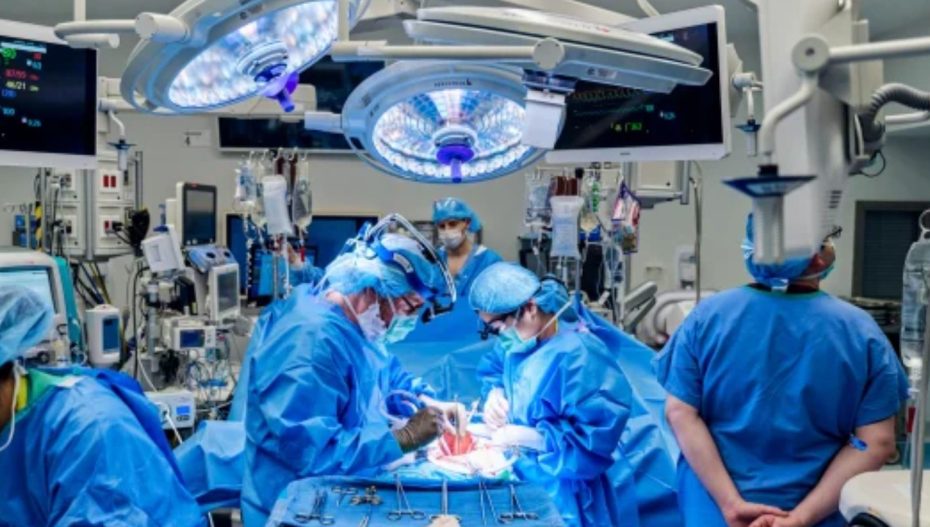Lisa Pisano, 54, had run out of options. A combination of heart and kidney failure left the New Jersey woman too sick to qualify for a traditional transplant.
Doctors at NYU Langone Health came up with an option. They decided to implant a mechanical pump to keep her heart beating and days later transplant a kidney from a genetically modified pig.
Doctors cheered in the operating theatre when the organ immediately started making urine. They said the experiment’s results were “transformative”. Transplant experts are closely watching how the patient fares.
A complex case
As both Pisano’s heart and kidneys had failed, she went into cardiac arrest and had to be resuscitated before the experimental surgeries.
A failed heart made her ineligible for a traditional kidney transplant. But while on dialysis, she didn’t qualify for a heart pump, called a left ventricular assist device or LVAD, either.
With emergency permission from the Food and Drug Administration, doctors chose an organ from a genetically engineered pig so that cells don’t produce a particular sugar that’s foreign to the human body and triggers immediate organ rejection.
Also, the donor pig’s thymus gland, which trains the immune system, was attached to the donated kidney in hopes that it would help Pisano’s body tolerate the new organ.
Surgeons implanted the LVAD to power Pisano’s heart on April 4, and transplanted the pig kidney on April 12. There’s no way to predict her long-term outcome but she’s shown no sign of organ rejection so far, doctors say.
Patient recovering well
Pisano is recovering well, hospital sources said on Wednesday. The first pig kidney transplant case was a transplant done last month at Masssachusetts General Hospital. This was one of the latest attempts to make animal-to-human transplantation a reality.
A relieved Pisano took a few steps with the help of a walker. She said she had lost hope and decided to take a chance. If it did not work for her it might work for someone else, she told the media.
Modifying pigs
More than 100,000 people are on the US transplant waiting list, and most need a kidney. To address the shortage in donated organs, biotech companies are genetically modifying pigs so that their organs are more human-like, and less likely to be destroyed by the human immune system.
NYU and other research teams have temporarily transplanted pig kidneys and hearts in brain-dead bodies with promising results. Then the University of Maryland transplanted pig hearts into two men who were out of other options, but both died within months. The Mass General’s pig kidney transplant last month raised new hopes.
Special “compassionate use” experiments teach doctors a lot but it will take rigorous studies to prove if xenotransplants (transplants from one species to another) really work. What happens with Pisano and Mass General’s kidney recipient will undoubtedly influence FDA’s decision to allow such trials.
Also Read: SC Ditches Marxist View Of Wealth Redistribution, Mulls Gandhian Definition













